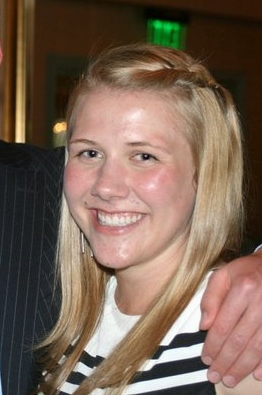Renee Huizinga
Open gallery

Renee is NCVLI’s 2012-2013 Masters of Social Work student intern. Renee came to us last June with a rich background in advocacy work on behalf of domestic violence and sexual assault survivors. Renee works in NCVLI’s offices two days per week assisting with the program coordination of a variety of projects. We are honored and excited to have Renee on board!
What do you do when you’re not at NCVLI?
Full time student, Graduate Research Assistant for the Oregon Master of Public Health Program, and Supervised Parenting Time Facilitator with Safety First Program, Multnomah County Family Court Services.
How did you get involved with NCVLI and victims’ rights?
I got involved with NCVLI during my second year of a dual MSW/MPH program at Portland State University. After hearing and reading great things about NCVLI, I requested to do my social work field placement here. I was drawn to NCVLI because of the strong commitment to support meaningful participation on an individual level, as well as accountability and capacity on a systems level.
What is something that stands out in your work with NCVLI?
I worked on the coordination of NCVLI’s National Crime Victims’ Rights Week 2013 event, a panel discussion titled “Our Online Lives: the Intersection of Law, Privacy, and Health.” It was fantastic to see participation from so many disciplines, coming together to consider how the media, law, and mental health services impact the experience of victims. In particular, I was excited to see so many social work students in attendance!
In gearing up for the event, I was really interested in learning more about the complex role media and technology can play for victims: media and technology can cause harm, violating privacy and compromising safety by sharing victim information, producing and reinforcing victim-blaming scripts, and creating platforms for unprecedented public participation in shaming and assigning blame to victims of crime. Conversely, media can also facilitate the healing process of narrative creation, enabling a victim to share a version of his or her experience that might not otherwise be taken up in court, the news, and in the community.
What will you take with you from your work with NCVLI
Working with NCVLI has been a genuine privilege. I’ve really admired the tireless energy and curiosity that NCVLI staff bring to exploring all of the complex features of systems in the landscape of victim experience. I aspire to hold on to, and emulate, this thoughtfulness, critical thinking and passion in my work moving forward.
What’s next after NCVLI?
This summer I will be closing in on completing my MPH degree by working with PSU’s Center for Women, Politics and Policy. Next academic year I will be working as a social work intern with Family Forward, a public policy advocacy organization focused on advancing local and state policies to support children, older adults, women, and caregivers in financial stability and well-being.
What do you do for fun?
In my free time, I love to play soccer, work on sewing projects, enjoy happy hour(s), and nap!

